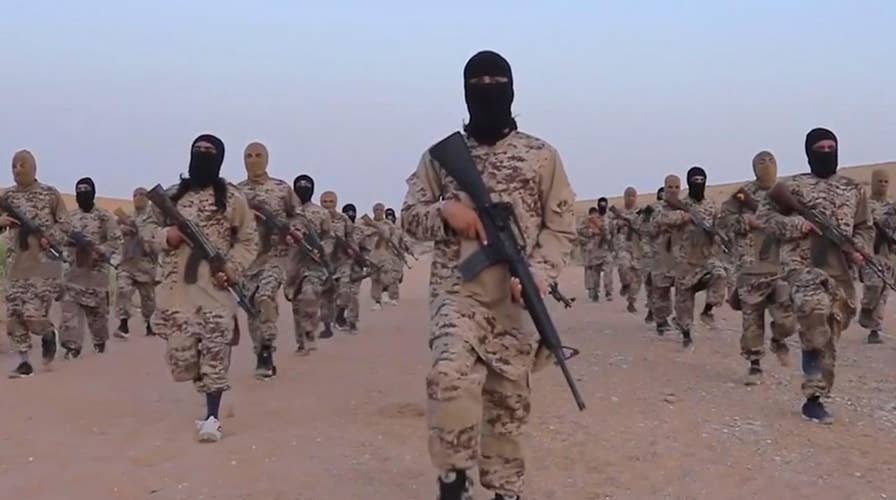ISIS ramps up calls for attacks during holy month of Ramadan
Former Special Forces officer Lt. Col. Mitch Utterback
TEHRAN, Iran – Iran's Revolutionary Guard said Sunday it launched missiles into eastern Syria targeting Islamic State (ISIS) militants in response to an attack on Iran's parliament and a shrine in Tehran, warning that it would similarly retaliate on anyone else carrying out attacks in Iran.
The launch of surface-to-surface medium range missiles into Syria's Deir el-Zour province comes as ISIS militants fleeing a U.S.-led coalition onslaught increasingly try to fortify their positions there.
Activists in Syria said they had no immediate information on damage or casualties from the strikes, launched from Iran's Kurdistan and Kermanshah provinces. Social media was awash in shaky mobile phone footage from those areas, allegedly showing the missiles rise in an orange glow before heading toward their targets.
Sunday's assault marked an extremely rare direct attack from the Islamic Republic amid its support for embattled Syrian President Bashar Assad. Iran's Revolutionary Guard, a hard-line paramilitary force, has seen advisers and fighters killed in the conflict.
A Guard statement carried on its website said many "terrorists" were killed and their weapons had been destroyed in the strike.
The Guard warned ISIS militants and their "regional and international supporters" that similar retaliatory attacks would target them as well if another assault in Iran occurs.
Activists in Syria did not immediately have information about the Iranian-claimed strikes. Deir el-Zour is home to both ISIS militants and civilians.
Five ISIS-linked attackers stormed Iran's parliament and a shrine to revolutionary leader Ayatollah Ruhollah Khomeini on June 7, killing at least 17 people and wounding more than 50.
That attack marked the first to hit Iran, shocking its residents who believed the chaos engulfing the rest of the Middle East would not find them in the Shiite-majority nation.
Iran has described the attackers as being "long affiliated with the Wahhabi," an ultraconservative form of Sunni Islam practiced in Saudi Arabia. However, it stopped short of directly blaming the kingdom for the attack, though many in the country expressed suspicion Iran's regional rival had a hand in the attack.
The attack also came as emboldened Sunni Arab states -- backed by U.S. President Donald Trump -- are hardening their stance against Iran.

